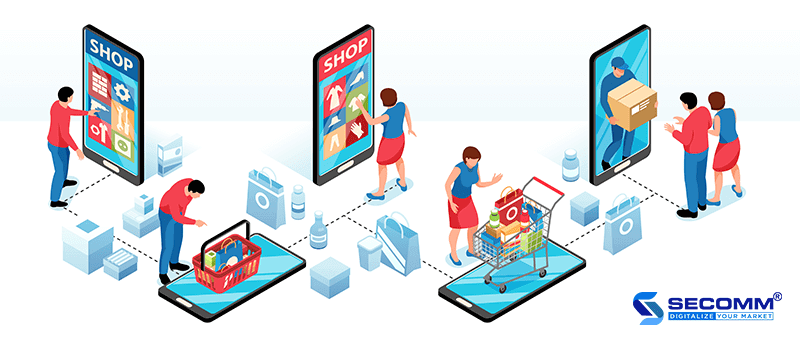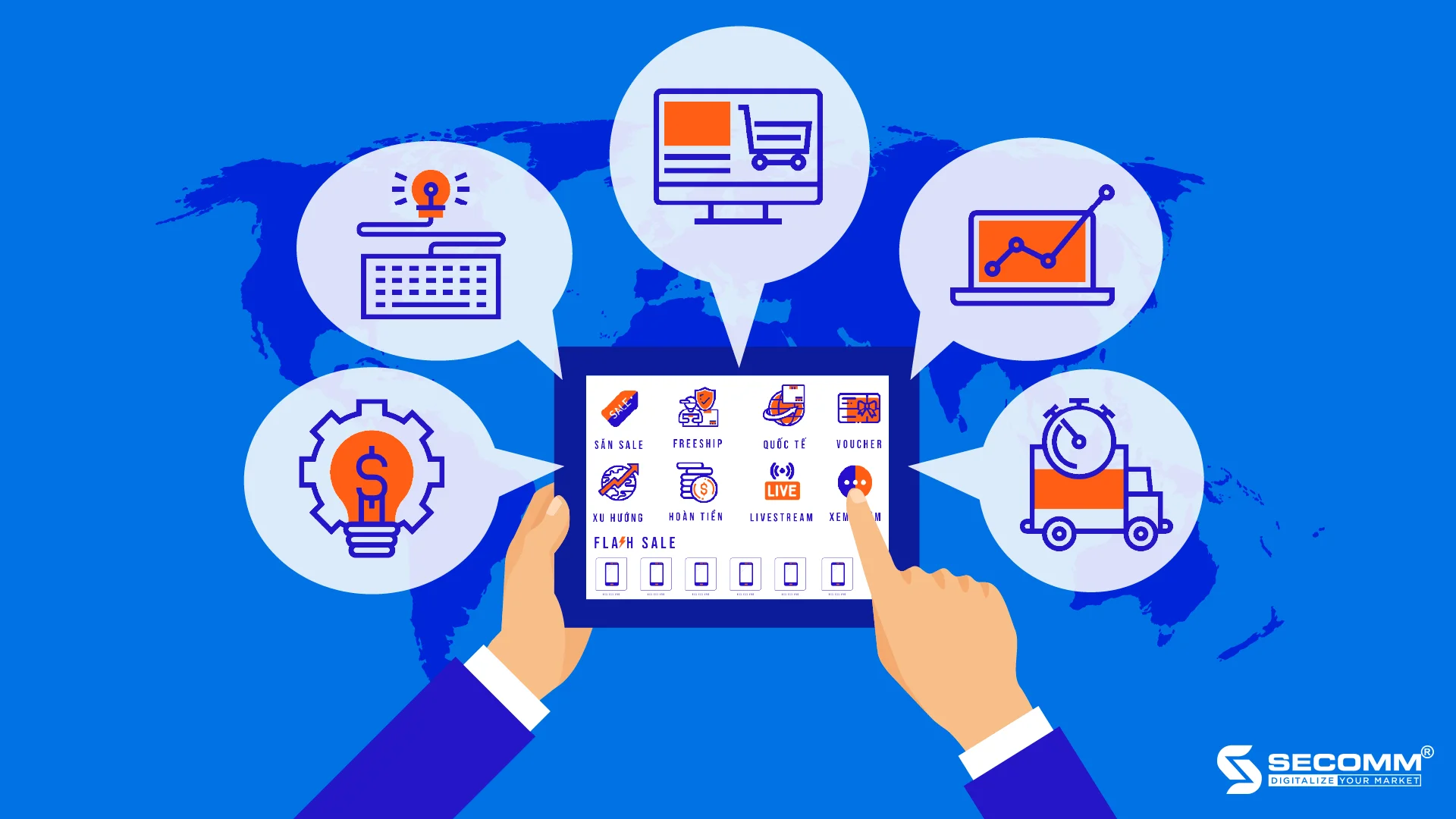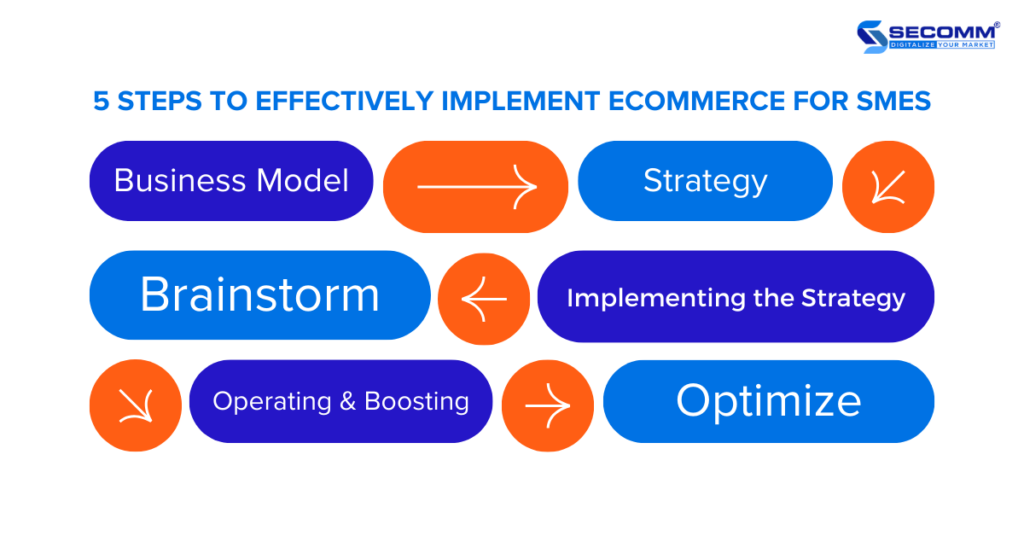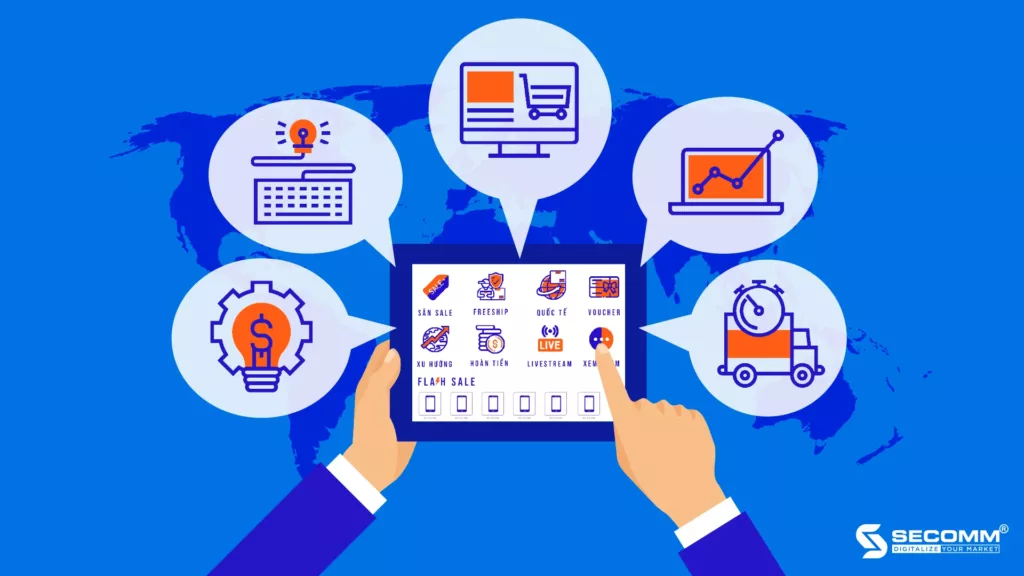It seems we can’t find what you’re looking for. Perhaps searching can help.
Sign Up for newsletter!
Subscribe to get the latest eBook!
Hotline







Platforms play a significant role in developing and operating an optimal eCommerce system. As a result, selecting an eCommerce platform should be done thoroughly and carefully to maximize the platform’s benefits and promote long-term business growth. Each business’s eCommerce model will have appropriate platform options depending on the development goals. However, most SMEs today face significant challenges in selecting a suitable eCommerce platform due to a variety of budget, time, and business characteristics.
The Magento eCommerce platform is the most fantastic platform for eCommerce systems among popular names such as Shopify, BigCommerce, WooCommerce, and so on. Magento has many distinct advantages, including high flexibility, a diverse ecosystem, and optimal security. However, are Magento’s outstanding features the best option for SMEs? So, what are the standout characteristics of the Magento eCommerce platform? Will they be appropriate for SMEs in the Vietnamese market?
The Magento eCommerce platform is designed to grow into a comprehensive eCommerce system.
+ Integrate Google Analytics to track and report on traffic, audience, purchasing process, and purchasing behavior.
+ Integrate Facebook Pixels makes tracking ads performance and capturing website actions simple.
+ Integrate Google Tag Manager to quickly update website metrics and related tags to increase personalization and accomplish the proper goals for the subsequent Marketing campaigns.

The Magento extension system has also been significantly developed to meet the eCommerce market’s rapid development and the specific requirements of each business.
Thousands of advanced functions on themes, add-ons, products, Marketing, payment optimization solutions, shipping, and so on have been built with flexibility and high usability to deliver exceptional results when integrated into the system that meets all operational needs and ensures the long-term growth of businesses’ eCommerce.
Businesses can fully integrate third-party services, analytics tools, management software, and Omni-channel with the Magento eCommerce platform to support efficient and seamless eCommerce operations.
In addition to a fully functional feature system, the Magento eCommerce platform is supported by a diverse system of extensions and technologies from a global developer community, allowing all eCommerce requirements of SME businesses to be met quickly anytime, and anywhere. The Magento eCommerce platform has a large developer community worldwide, including many experienced professionals and Magento developers.

Businesses will receive maximum support in solving problems arising from technical errors and consulting on building eCommerce solutions that fit the enterprise’s business model with a strong Magento eCommerce platform development community.
An extensive technical support community is another example of the reliability and capacity to quickly resolve system errors and updates that Magento constantly brings to our eCommerce system.
The Magento eCommerce platform’s flexibility is an exceptional advantage that allows the Magento eCommerce platform to operate any complex system. Given this benefit, Magento is an excellent choice for Vietnamese SMEs today. Moreover, businesses can easily change system functions, develop new features, or open new stores to meet their needs and respond to rapid market change.
The Magento eCommerce platform possesses the advantages of open-source software with extensive customizability to help the system run smoothly. Enterprises can easily own and control the entire system source code and customize it to change parts to suit the eCommerce system’s general operating model.
Owing to this benefit, Magento is highly customizable for any size business and can meet the eCommerce needs of both small and large corporations.
Besides that, the customizability of open-source code enables developers to create more innovative and comprehensive solutions tailored to each business, field, and business model, creating highly specialized eCommerce functions that result in effective system performance.
Magento allows businesses to scale from one website/store to many different websites/stores on the same system to meet the needs of business scale development. Businesses can access and manage all data from multiple websites/stores using a single Magento system.

With Magento’s language conversion support, businesses can create an eCommerce system with customer-friendly content and language. Besides that, the Magento system enables businesses to quickly convert currencies, expand their markets in many countries, and assist customers in transacting conveniently and having the best shopping experience.
High security is another significant benefit that makes the Magento eCommerce platform the preferred choice for SMEs. Magento is a complete eCommerce system with security functions that ensure seamless eCommerce operation while minimizing potential data system and ecommerce transaction processing risks. As a result, system security is improved, website credibility is increased, and user interests are protected to the greatest extent possible.

Magento includes a periodic security scan tool to identify security issues or malware affecting the system and update patches and notifications, then propose security solutions to handle arising errors, thereby effectively improving and optimizing the website’s security.
The requirement to use advanced passwords should also be fully implemented to increase the level of security for administrative accounts. The administrator password must be at least seven characters long and include letters, numbers, and special symbols. Relating to further adjustments, the password complexity may be increased with lower case/case sensitivity, or re-login may be required after a certain length of the login session.
CAPTCHA can protect the system for both administrators and website visitors. In addition, using CAPTCHA aids the system in preventing bot spam and malicious code from entering the system illegally.
This function provides additional security for system user accounts. Accordingly, customers will have to authenticate with an additional OTP security code sent to the phone number provided during account registration after logging in with a password. This two-layer security operation effectively limits the threats of unauthorized access and account attacks while enhancing protection and maximum safety for system users.
With significant advantages such as a fully functional feature system, flexibility, a diverse ecosystem, and optimal security, the Magento eCommerce platform is the best choice for SMEs looking to build a stable and sustainable eCommerce system. However, due to deployment costs, implementation time, and complex industry-specific issues, most SMEs are still hesitant to use Magento to build an eCommerce system.

Although Magento is highly regarded for its features and performance, the cost barrier prevents SMEs from selecting the Magento eCommerce platform to build their system. Furthermore, the expertise of the system developers is a significant factor that significantly increases the cost of Magento implementation. Therefore, a complete and efficient Magento eCommerce website is implemented by a professional team that is thoroughly knowledgeable about Magento to develop the proper comprehensive system from the beginning and provide appropriate solutions for the enterprise’s various needs in the long run.
A fully functional system built on the Magento eCommerce platform is estimated to cost between $10,000 and $100,000.
A complete project on the Magento eCommerce platform typically takes 2-3 months to deploy, with some projects taking up to a year. Additionally, enterprises should constantly develop components of the eCommerce system. Furthermore, the functional system’s complexity necessitates time investment to build appropriate development solutions.
When selecting an eCommerce deployment platform, SMEs should consider the time issue carefully. With the requirements of the eCommerce and digital transformation markets, the extended system implementation time slows down the digital transformation process, making it difficult for businesses to keep up with competitors or constantly update trends in the market.
When converting to eCommerce, the specific characteristics of each industry and field remain a complex problem for every SME. Because most Vietnamese SMEs lack the technical knowledge and expertise required to build particular functions that can satisfy one or more specialized processes and the complexity of the eCommerce system, industry specificity has become a significant obstacle. These specific functions necessitate a corresponding technological solution to ensure that the eCommerce system can operate effectively and sustainably after the transformation.
Simultaneously, to build a specific feature with high complexity for a Magento store, businesses may need to spend more money and time than usual to develop a suitable solution to the particular requirements of an eCommerce business.
With extensive experience developing many complex e-commerce systems on Magento, SECOMM understands the challenges that businesses face when selecting a platform and implementing E-commerce.
Contact SECOMM for a free consultation on comprehensive e-commerce system development solutions!
 2
2
 5,152
5,152
 0
0
 1
1
In the rapidly evolving landscape of today’s economy, where opportunities and competition are just a mouse click away, the effective implementation of E-commerce (EC) is a non-negotiable for businesses, regardless of their involvement in low or high-involvement industries. This comprehensive guide outlines the crucial steps that Small and Medium Enterprises (SMEs) can take to deploy and manage EC strategies successfully, ensuring a competitive edge in the digital marketplace.

The initial phase involves meticulous planning and selecting an EC business model that aligns with the overall development direction of the business. SMEs have three primary models to consider:
Building a robust EC strategy is a cornerstone for SMEs. Leveraging the 5W1H method provides a structured approach to strategic planning:
The focus of this step is on determining purchasing channels and ensuring a seamless customer experience:
Once the EC system is operational, the emphasis shifts to maintaining and enhancing the system for optimal performance:
Improving post-purchase services is essential for customer satisfaction and increased conversion rates:
The implementation of EC is a critical endeavor for SMEs, representing a transformative journey that, when executed effectively, can lead to sustainable growth and increased market share. However, navigating the complexities of the EC landscape requires a strategic approach and a wise investment of time and resources.

 2
2
 5,210
5,210
 0
0
 1
1Subscribe to get the latest eBook!
Hotline